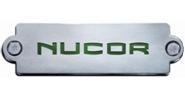Market Segment

March 23, 2014
EPA Orders Tighter Pollution Controls at Nucor Louisiana
Written by Sandy Williams
Following an unsuccessful attempt to block the air pollution permit for Big River Steel, Nucor Corp. finds itself on the on the receiving end of tighter air pollution orders from the Environmental Protection Agency (EPA).
The EPA has ordered the Louisiana Department of Environmental Quality (LDEQ) to require Nucor Steel Louisiana to take additional steps to reign in pollutants from the plant’s coke ovens at the St. James Parish facility. The DRI plant in Convent, La., began operations this past December.
The LDEQ must respond to the EPA decision by April 30.
In comments published in the Federal Registry on March 21, the EPA also objected to the DRI permit because of failure to include any emission limits for fine particulate matter of 2.5 microns or smaller.
The permit for a future pig iron plant at the site was found to have inadequate monitoring to ensure compliance with certain pollutant emission limits.
Three objections to the Nucor permit were presented to the EPA by the Louisiana Environmental Action Network and Sierra Club between 2010 and 2012. The EPA agreed with some of the objections by the environmental groups but ruled against a complaint in 2011 (Specific Objection 1) that the state improperly issued separate permits for the pig iron and DRI facility.
The 2010 Petition objected to the Nucor operating permit on the basis that: (1) The permit fails to apply the appropriate maximum achievable control technology (MACT) standards; (2) the modeling submitted by Nucor to support its PSD analysis is flawed, and (3) the title V permit fails to incorporate conditions sufficient to assure compliance with PSD.
The 2011 Petition objected to two Nucor operating permits stating: 1) LDEQ failed to aggregate PSD permitting for emissions from the entire facility (this issue is also known as ‘‘Specific Objection I’’ in this matter); (2) the modified pig iron permit fails to apply MACT standards for the topgas boilers; (3) LDEQ failed to include emission limits for particulate matter less than 2.5 microns; (4) the limit for natural gas consumption is not the best available control technology for greenhouse gas (GHG) emissions from the Direct Reduced Iron (DRI) process; and (5) the DRI permits must specify procedures estimating GHG emissions.
The 2012 Petition reiterated the concerns of the previous permits and requested the EPA object to the Nucor operating permits based on those concerns. (Sources: Times-Picayune and US Federal Register)







